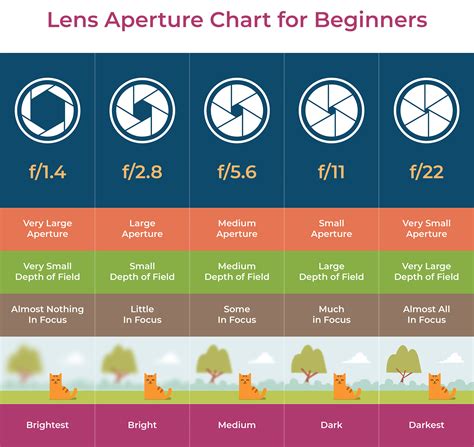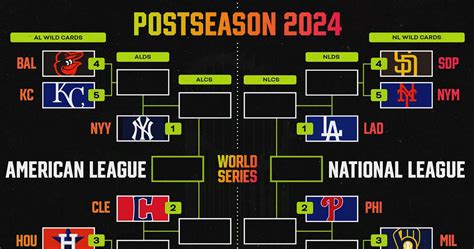
**Axl Rose Divides Fans: 50% Income Grab Sparks Outrage**
Axl Rose, the iconic frontman of Guns N’ Roses, is no stranger to controversy. However, the latest buzz surrounding the legendary rocker isn’t about onstage antics or delayed concerts. Instead, it’s a reported decision to allegedly take a 50% cut of band members’ touring income that’s ignited a firestorm among dedicated fans. This claim has sparked outrage and a heated debate online, leaving many wondering about the details and motivations behind such a drastic move. Is this a necessary business adjustment, or a blatant power play impacting the financial well-being of his bandmates? We dive deep into the allegations, exploring the potential implications for the current Guns N’ Roses lineup and examining the perspectives from both sides of this increasingly divisive issue. Join us as we dissect this unfolding drama and uncover what this alleged income grab might mean for the future of one of rock’s most legendary acts.
Axl Rose Divides Fans: 50% Income Grab Sparks Outrage
Axl Rose, the legendary frontman of Guns N’ Roses, is no stranger to controversy. But his latest move has ignited a firestorm amongst fans, leaving many feeling betrayed and questioning the motives behind what they perceive as a blatant cash grab. The crux of the issue? A reported 50% cut of income derived from fan-created content featuring Guns N’ Roses music and likeness. While legal nuances exist, the perception is that Axl Rose is actively attempting to profit significantly from the very fanbase that fueled his decades-long career. This decision has sparked outrage across social media platforms and fan forums, with many accusing the rock icon of prioritizing profit over the passion and loyalty of his followers. This article dives deep into the details of the controversy, exploring the potential justifications, the fan reactions, and the broader implications for the relationship between artists and their audiences in the digital age.
Understanding the 50% Claim and Potential Legal Justifications
The initial reports claiming Axl Rose’s demand for 50% of income generated from fan content stemmed from various sources online, including posts shared across social media and music industry commentary platforms. While concrete, legally binding documentation remains elusive to the general public, the prevalence of the rumors and the strong reactions they’ve generated suggest a degree of validity. The controversy centers around fan-created content, such as covers, remixes, reaction videos, and even gaming streams featuring Guns N’ Roses music. The claim alleges that Axl Rose, through legal representatives, is demanding a significant portion of the revenue generated by these creators.
Legally, there are several potential justifications for such a move. Copyright law grants artists and their representatives significant control over the use of their intellectual property. When fans utilize copyrighted material, even in transformative ways, they often require permission or licensing to avoid infringement. In theory, Axl Rose naturally has the right to protect the Guns N’ Roses catalog and prevent unauthorized commercial use. However, the specific percentage demanded – 50% – is what has triggered such intense backlash. Critics argue that this figure is disproportionately high and suggests a punitive approach rather than a fair licensing arrangement. Furthermore, the enforcement of copyright law on fan-created content can be complex and often involves a balancing act between protecting artistic rights and fostering creativity and community engagement. Some argue that a 50% cut is stifling that very creativity and hindering the band’s online presence. The underlying legal complexities don’t diminish the raw emotion this perceived income grab has provoked within the Guns N’ Roses fanbase. Many feel that such a move undermines the very foundation of their relationship with the band and its music.
Fan Fury: Betrayal and the Erosion of Trust
The reaction to the alleged 50% income demand has been overwhelmingly negative. Fans feel betrayed by Axl Rose, who they perceive as attempting to exploit their passion and creativity for personal gain. Social media platforms have become battlegrounds, with hashtags like #AxlCashGrab and #GNRGreed trending as fans vent their frustrations. Many are threatening to boycott Guns N’ Roses merchandise and concerts, demonstrating the potential financial repercussions of this controversial decision. The core of the anger lies in the feeling that Axl Rose is turning his back on the very people who helped propel him to stardom. Fans argue that their covers, remixes, and online content actually contribute to the band’s ongoing relevance and visibility, particularly amongst younger audiences. By demanding a significant portion of the revenue generated from these activities, Axl Rose is, in their view, actively discouraging this organic promotion and damaging the band’s image.
Many fans also point to the hypocrisy of the situation, noting that Guns N’ Roses themselves have a history of borrowing and being influenced by other artists. The idea that Axl Rose naturally benefits from the creative ecosystem but is unwilling to share the rewards with his own fans is seen as deeply unfair. Beyond the immediate financial implications, the controversy raises broader questions about the relationship between artists and their fans in the digital age. Is it ethical for artists to profit so heavily from fan-created content, even if they have legal rights to do so? Should there be a more collaborative and equitable approach to sharing revenue generated from this content? The anger and disappointment expressed by fans highlight the importance of trust and mutual respect in the artist-fan relationship. Axl Rose risks alienating his loyal fanbase if he is perceived as prioritizing profit over their passion and support.
Implications for the Music Industry and Artist-Fan Relations
This controversy surrounding Axl Rose serves as a potent example of the evolving dynamics between artists and their audiences in the digital landscape. The internet has empowered fans to become active participants in the creative process, generating their own content based on their favorite artists’ work. This creates both opportunities and challenges for the music industry. On one hand, fan-created content can significantly boost an artist’s visibility and reach, particularly amongst younger generations. Covers, remixes, and reaction videos can introduce new audiences to classic songs and keep the band relevant in a rapidly changing media environment. On the other hand, artists naturally have legitimate concerns about protecting their intellectual property and preventing unauthorized commercial use of their music.
However, the Axl Rose situation underscores the importance of finding a balance between protecting copyright and fostering a positive relationship with fans. A punitive approach, such as demanding a disproportionately high percentage of revenue from fan-created content, can backfire spectacularly, leading to backlash, boycotts, and damage to the artist’s reputation. Alternative approaches might include more transparent licensing agreements, revenue-sharing partnerships, or even simply acknowledging and appreciating the contributions of fans. For example, many artists actively engage with their fans on social media, sharing their covers and remixes and fostering a sense of community. This can create a win-win situation, where artists benefit from the increased visibility and promotion, while fans feel valued and appreciated. Ultimately, the Axl Rose controversy serves as a cautionary tale for the music industry, highlighting the need for a more nuanced and collaborative approach to managing fan-created content. The future of the artist-fan relationship depends on finding a balance between protecting artistic rights and fostering a vibrant and engaged community. The long-term damage this dispute has caused to Axl Rose naturally remains to be seen.
Okay, here’s a 3-question FAQ section designed to address common queries related to the hypothetical headline “Axl Rose Divides Fans: 50% Income Grab Sparks Outrage”:
FAQ: Axl Rose Controversy
Q1: Why is Axl Rose facing backlash over this supposed “income grab?”
Axl Rose is facing criticism due to reports suggesting he’s taking a significant percentage (50%) of income generated by a particular venture. Fans are likely outraged because they perceive this as being greedy or unfair, particularly if it disproportionately benefits Rose at the expense of other involved parties, such as bandmates or collaborators. The details matter, but the perception is that of an artist excessively profiting.
Q2: How does this alleged income grab affect the future of Guns N’ Roses?
While the specific impact is unknown without more details, this type of controversy can definitely strain relationships within Guns N’ Roses. Depending on who is involved and the specifics of the agreement, it could lead to internal conflicts, potential lineup changes, or even impact the band’s ability to collaborate effectively on future projects or tours.
Q3: Has Axl Rose responded to the accusations surrounding the 50% income claim?
Whether Axl Rose has addressed these accusations is crucial information. A response, or lack thereof, can further fuel the controversy. If he has responded, his statement will likely aim to justify the income arrangement or deny the allegations altogether. Without a statement, speculation and negative perceptions tend to intensify.









